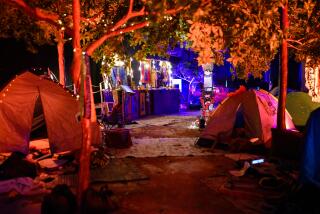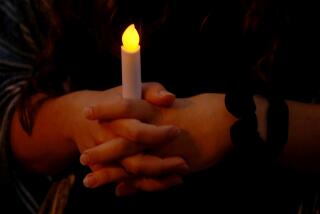What terrorists want
Remember when your high school teachers tried to give their lessons more urgency by repeating the old adage that those who forget history are condemned to repeat it? Well, those days are over, or at least they should be. That’s because in today’s hyper-connected world, oblivion and forgetting are no longer options. The much greater danger today is our postmodern penchant to watch, replay, fixate and fetishize history even as it’s happening.
Seven years ago, German composer Karlheinz Stockhausen got into a heap of trouble by calling the 9/11 terrorist attacks “great art.” But put aside his insensitivity and you can start to see that he had a point. What Stockhausen (who died last year) was referring to was the performance-like aspect of the televised World Trade Center crashes. He was amazed that Al Qaeda could reorient the American public’s worldview in “one act” -- something, he lamented, that a person in his profession could never achieve.
The attacks in Mumbai had a similar performance-art quality. The terrorists, who did nothing to obscure their identities, were monitoring international media reaction to their three-day killing spree on their BlackBerrys. In other words, as they slaughtered people, they were watching us watch them.
Some critics have blamed the media for giving the Mumbai terrorists the attention they so clearly desired. Anyone from Los Angeles to Cape Town could view real-time video feeds of burning hotels and sniper fire. If that wasn’t enough, Mumbai residents were also providing live updates by way of Twitter, as well as Flickr and cellphone photographs. As you watched the events unfold, you knew that somehow you were playing into the killers’ hands. The terrorists kill to grab your attention, and they dare you to look away.
“This is precisely how terrorism is meant to work,” British terrorism expert Paul Cornish wrote last week. “The terrorist’s action must always be complemented by the target’s reaction in order to complete the scene.”
Part of that reaction is the rush to memorialize the moment and honor the dead. The terrorists lure their target societies into the need to remember -- the iconization of the event. They’re under no illusions that they will remake the world with their actions or win a conventional battle; their goal instead is to invade our collective psyches. And the rush to memorialize, remember and enshrine these events -- and their victims -- plays into the hands of the terrorists as much or more than 24/7 news coverage.
Of course, it’s true that memorializing trauma is one way of processing and making sense of tragedy and violence. If terrorist attacks on unsuspecting civilians breed mass feelings of insecurity and vulnerability, then memorializing the victims and going over and over the event is a way to reclaim some semblance of order. But the manipulation of those memories can also end up being less an act of honoring the dead than of glorifying and justifying the actions of the killers.
The remorseless Mumbai attackers clearly felt that the enshrined memory of their own dead legitimized the murder of others. An Indian television station quoted a militant as asking: “Are you aware of how many people have been killed in Kashmir? Are you aware how your army has killed Muslims? Are you aware how many of them have been killed in Kashmir this week?”
It’s a vicious circle. Survivors often allow themselves to be defined by the evil wrought upon them by others. The survivors “complete the scene” that the terrorists started by never forgetting. Literary critic Leon Wieseltier once wisely called into question the transformation of oppressive “experiences into traditions.”
Although he was speaking of events that happened over years, like slavery or the Holocaust, I think his analysis extends to incidents of terrorism. “In the memory of oppression,” he wrote, “oppression outlives itself. The scar does the work of the wound. ... It is a posthumous victory for the oppressors, when pain becomes a tradition.”
I don’t blame the media or their consumers for fixating on the violence in Mumbai. It’s impossible to forget 9/11 just as it instantly became impossible to forget the events at the Taj Mahal Palace & Tower hotel, the Chabad center and all the other now infamous locations in Mumbai. But from time to time, when the killers take over our image-driven world, when their actions are first memorialized in one iconic digital feed or another, and as that memorializing explodes into the future, we should also summon the strength to look away.
grodriguez@latimescolumnists.com
More to Read
A cure for the common opinion
Get thought-provoking perspectives with our weekly newsletter.
You may occasionally receive promotional content from the Los Angeles Times.










